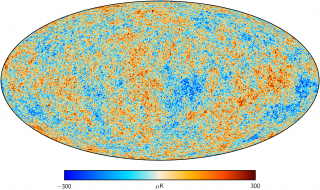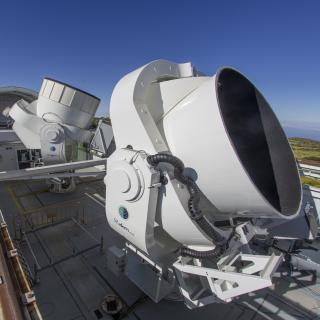Bibcode
Addamo, G.; Ade, P. A. R.; Baccigalupi, C.; Baldini, A. M.; Battaglia, P. M.; Battistelli, E. S.; Baù, A.; de Bernardis, P.; Bersanelli, M.; Biasotti, M.; Boscaleri, A.; Caccianiga, B.; Caprioli, S.; Cavaliere, F.; Cei, F.; Cleary, K. A.; Columbro, F.; Coppi, G.; Coppolecchia, A.; Cuttaia, F.; D'Alessandro, G.; De Gasperis, G.; De Petris, M.; Fafone, V.; Farsian, F.; Ferrari Barusso, L.; Fontanelli, F.; Franceschet, C.; Gaier, T. C.; Galli, L.; Gatti, F.; Genova-Santos, R.; Gerbino, M.; Gervasi, M.; Ghigna, T.; Grosso, D.; Gruppuso, A.; Gualtieri, R.; Incardona, F.; Jones, M. E.; Kangaslahti, P.; Krachmalnicoff, N.; Lamagna, L.; Lattanzi, M.; López-Caraballo, C. H.; Lumia, M.; Mainini, R.; Maino, D.; Mandelli, S.; Maris, M.; Masi, S.; Matarrese, S.; May, A.; Mele, L.; Mena, P.; Mennella, A.; Molina, R.; Molinari, D.; Morgante, G.; Natale, U.; Nati, F.; Natoli, P.; Pagano, L.; Paiella, A.; Panico, F.; Paonessa, F.; Paradiso, S.; Passerini, A.; Perez-de-Taoro, M.; Peverini, O. A.; Pezzotta, F.; Piacentini, F.; Piccirillo, L.; Pisano, G.; Polenta, G.; Poletti, D.; Presta, G.; Realini, S.; Reyes, N.; Rocchi, A.; Rubino-Martin, J. A.; Sandri, M.; Sartor, S.; Schillaci, A.; Signorelli, G.; Siri, B.; Soria, M.; Spinella, F.; Tapia, V.; Tartari, A.; Taylor, A. C.; Terenzi, L.; Tomasi, M.; Tommasi, E.; Tucker, C.; Vaccaro, D.; Vigano, D. M.; Villa, F.; Virone, G.; Vittorio, N. et al.
Bibliographical reference
Journal of Cosmology and Astroparticle Physics
Advertised on:
8
2021
Citations
47
Refereed citations
43
Description
The measurement of the polarization of the Cosmic Microwave Background (CMB) radiation is one of the current frontiers in cosmology. In particular, the detection of the primordial divergence-free component of the polarization field, the B-mode, could reveal the presence of gravitational waves in the early Universe. The detection of such a component is at the moment the most promising technique to probe the inflationary theory describing the very early evolution of the Universe. We present the updated performance forecast of the Large Scale Polarization Explorer (LSPE), a program dedicated to the measurement of the CMB polarization. LSPE is composed of two instruments: LSPE-Strip, a radiometer-based telescope on the ground in Tenerife-Teide observatory, and LSPE-SWIPE (Short-Wavelength Instrument for the Polarization Explorer) a bolometer-based instrument designed to fly on a winter arctic stratospheric long-duration balloon. The program is among the few dedicated to observation of the Northern Hemisphere, while most of the international effort is focused into ground-based observation in the Southern Hemisphere. Measurements are currently scheduled in Winter 2022/23 for LSPE-SWIPE, with a flight duration up to 15 days, and in Summer 2022 with two years observations for LSPE-Strip. We describe the main features of the two instruments, identifying the most critical aspects of the design, in terms of impact on the performance forecast. We estimate the expected sensitivity of each instrument and propagate their combined observing power to the sensitivity to cosmological parameters, including the effect of scanning strategy, component separation, residual foregrounds and partial sky coverage. We also set requirements on the control of the most critical systematic effects and describe techniques to mitigate their impact. LSPE will reach a sensitivity in tensor-to-scalar ratio of σr < 0.01, set an upper limit r < 0.015 at 95% confidence level, and improve constraints on other cosmological parameters.
Related projects

Anisotropy of the Cosmic Microwave Background
The general goal of this project is to determine and characterize the spatial and spectral variations in the temperature and polarisation of the Cosmic Microwave Background in angular scales from several arcminutes to several degrees. The primordial matter density fluctuations which originated the structure in the matter distribution of the present
Rafael
Rebolo López

QUIJOTE CMB Experiment (Q-U-I JOint TEnerife CMB Experiment)
QUIJOTE es un programa de dos telescopios y su batería de instrumentos, instalados en el Observatorio del Teide, dedicados fundamentalmente a la caracterización de la polarización del Fondo Cósmico de Microondas, en el rango de frecuencias de 10-42 GHz.
José Alberto
Rubiño Martín